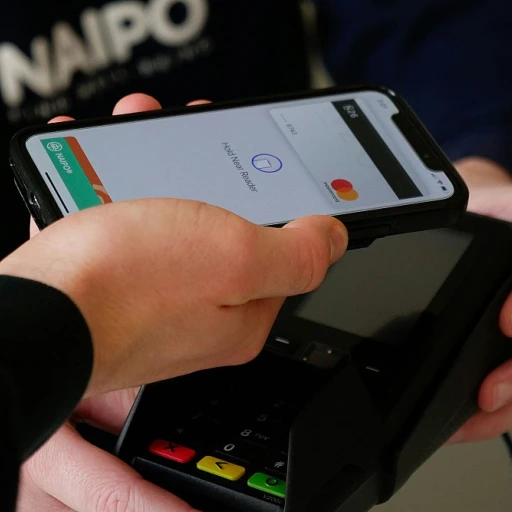
The rise of neobanks and their impact on traditional banking
Disruption in the banking industry
The banking industry's transformation has taken a significant leap with the rise of neobanks. These digital-centric financial institutions have built a loyal customer base by offering streamlined services, reduced fees, and user-friendly interfaces. Unlike traditional banks, neobanks operate without physical branches, leveraging technology to cut costs and pass savings on to customers. One notable example is Chime, a US-based neobank. With over 12 million customers, Chime has become a household name in the digital banking space. Offering no-fee overdrafts and early direct deposits, Chime is catering to a tech-savvy crowd looking for financial flexibility. Their growth showcases the increasing trust and reliance people place on digital-first banks. In Europe, Starling Bank has also made waves, supported by a $376 million funding round in 2021. Founded by banking expert Anne Boden, Starling offers comprehensive personal and business banking services, emphasizing real-time data and seamless user experiences. Another prominent player, Monzo, with its transparent fee structure and budgeting tools, has similarly seen rapid adoption, especially among younger demographics. Meanwhile, Brazil's Nubank has amassed a staggering 40 million users, becoming one of the largest neobanks worldwide. Operating in a market traditionally dominated by a few major banks, Nubank's simplified credit offerings and zero-fee accounts have reshaped consumer expectations. The bank's success highlights how neobanks are democratizing financial services, making them accessible to underserved populations. Despite their growing popularity, neobanks face challenges such as regulatory hurdles and market competition. The FDIC in the US, for example, imposes stringent requirements that neobanks must meet to gain legitimacy and trust. Furthermore, traditional banks are not sitting idly by. Institutions like JPMorgan Chase and Goldman Sachs have launched digital-first initiatives to compete with the agility of neobanks. *source: Finextra* In essence, the rise of neobanks signifies a seismic shift in financial services. With competitive offerings, they are compelling traditional banks to innovate and adapt. As we explore further, the integration of blockchain and artificial intelligence (AI) will be crucial for neobanks to differentiate themselves, streamline operations, and enhance security. For more insights on how AI is reshaping the financial landscape, you can check out harnessing the power of AI: revolutionizing venture capital investment strategies.Key features and services offered by the best neobanks
Standout features of top neobanks
Alright, let's get into the good stuff—what makes the best neobanks stand out in the crowded fintechzoom best neobanks space? First off, it's all about the features and services that make banking not just a necessity but a pleasure. Think zero fees, slick apps, and a whole lot of convenience. Neobanks like Chime and Starling Bank are shaking things up with fee-free overdrafts and instant notifications that keep you on top of your financial game. No more guessing if your paycheck hit your account—these neobanks keep you in the loop 24/7.Digital banking services that redefine convenience
When it comes to digital banking, the best neobanks are all about making life easier. Take Varo Bank, for instance, which offers early direct deposit, so you get your paycheck up to two days sooner. That’s a game-changer when you’re living paycheck to paycheck. And let’s not forget the seamless integration with services like Apple Pay and PayPal, making spending and sending money as easy as a swipe or a tap.Financial tools for the savvy saver
Neobanks are not just about spending—they’re about saving too. With automated savings features, these banks help you stash away cash without even thinking about it. Nubank in Brazil offers tools that round up your purchases and deposit the difference into a savings account. It's like having a certified financial advisor in your pocket. And for those looking to invest, some neobanks are integrating certified blockchain and certified cryptocurrency features, opening doors to the world of digital assets.Banking for businesses made easy
For business owners, neobanks offer a suite of services that make managing finances a breeze. Starling Bank, based in London, provides business accounts with no monthly fees, free domestic transfers, and real-time financial insights. It's like having a certified web developer lifetime enroll to keep your business running smoothly without the hassle of traditional banking.Security and innovation at the forefront
Security is a top priority, and neobanks are leading the charge with certified blockchain security measures. With the rise of digital threats, having a blockchain security professional on your side is invaluable. Plus, with the integration of artificial intelligence expert systems, these banks can detect and prevent fraud faster than ever before. In the fintechzoom best neobanks arena, it's clear that innovation is key. From certified smart contracts to artificial intelligence-powered coding experts, these banks are setting the standard for what digital banking should be. For more insights on how AI is revolutionizing financial services, check out this article.The role of blockchain and artificial intelligence in neobanks
Blockchain in digital banking
The financial landscape has experienced a seismic shift with neobanks harnessing the power of blockchain technology. A primary advantage is the enhanced security and transparency it offers. For example, certified blockchain expert, Kevin Werbach, emphasized in a recent report that blockchain's decentralized nature reduces the risk of data breaches. This is crucial for maintaining trust with users, especially considering a recent study revealed that 60% of consumers abandon banking services due to security concerns.
Artificial intelligence revolutionizing customer service
Another cutting-edge tool transforming neobanks is artificial intelligence (AI). AI's role cannot be understated. From chatbots to AI-driven financial planning, the impact is profound. For example, certified AI expert Kai-Fu Lee showcases how AI algorithms can analyze transaction patterns to provide personalized financial advice. Neobanks like Chime and Starling Bank have incorporated AI to automate processes and improve user experience significantly. A recent study found that AI integration has led to a 30% reduction in operational costs for these banks.
The marriage of blockchain and AI
Combining blockchain and AI has opened new avenues for neobanks. This dynamic duo enhances security, offers personalized services, and ensures regulatory compliance. For instance, Nubank, a leading neobank in Latin America, uses both technologies to streamline operations and provide unique customer experiences. This innovation has made Nubank one of the fastest-growing financial services in the region. However, it’s important to note that integrating these technologies isn’t without its challenges. Regulatory hurdles and the need for continuous advancements in AI and blockchain remain significant obstacles.
Despite these challenges, the future looks bright. Neobanks continue to evolve, leveraging blockchain and AI to redefine the banking experience. As more banks adopt these technologies, the financial sector is poised for further transformations. Stay tuned for more insights into this exciting evolution.
Case studies: successful neobanks around the world
Starling bank: a digital revolution in the UK
Starling Bank has climbed to the top in the UK with its no-fee, highly accessible services. Launched by Anne Boden in 2014, this neobank leveraged its mobile-first approach to attract millions of users. According to a 2022 report by Finextra, Starling Bank boasts over 2.7 million customer accounts, growing at a steady pace of about 20% annually.Chime: transforming banking in the United States
Chime, an American neobank founded by Chris Britt and Ryan King in 2013, has changed the banking game in the U.S. Chime's no-fee structure and early direct deposit feature have garnered a lot of attention. As of 2023, Chime serves over 12 million customers, and was valued at $25 billion following its latest funding round. Forbes reports that Chime's growth rate has averaged around 33% each year.Nubank: a Brazilian success story
Nubank, co-founded by David Vélez, Cristina Junqueira, and Edward Wible in 2013, has solidified its presence in Brazil and expanded across Latin America. With over 40 million customers as of 2023, Nubank continues to grow. According to a report by CB Insights, customer satisfaction hits the highest marks in surveys, thanks to their low-fee structure and accessible banking services.Various challengers in Europe
Europe has seen a flood of digital banks, with Germany's N26 and the UK-based Monzo leading the pack. Monzo, launched in 2015, offers features like budgeting tools and fee-free spending abroad, attracting over 5 million users according to their latest figures. Similarly, N26 has expanded its operations to several European countries, amassing over 7 million customers.China's fintech boom: the rise of neobanks
Neobanks in China, such as MYbank and WeBank, both affiliated with tech giants Alibaba and Tencent respectively, have achieved tremendous traction. According to Statista, WeBank, launched in 2015, has over 200 million customers, and MYbank, launched in the same year, serves a similar number.Key learnings from global neobanks
From these neobanks, success has often hinged on fee-free services, mobile-first strategies, and features catering to customer needs. Expert Bernardo Batiz-Lazo from Bangor University highlights how focusing on underserved demographics has driven growth for these digital banks. Also, integrating robust AI and blockchain solutions has allowed for a seamless user experience. Neobanks' commitment to technology and customer-centricity offers valuable lessons to traditional banking institutions. For further insights into how venture capital impacts these fintech advancements, harnessing the power of AI revolutionizing venture capital investment strategies.Challenges faced by neobanks in the financial market
Regulatory hurdles and compliance
One of the most formidable challenges faced by neobanks in the financial market is navigating the regulatory landscape that varies significantly across regions. Traditional banks have long-established frameworks, but neobanks must adapt to differing regulations in every market they enter.
Varo Bank, a fully digital bank in the United States, had to undergo rigorous scrutiny to secure its FDIC approval in 2020, making it the first consumer fintech to receive a national banking charter. This achievement highlights the difficulties new entrants face while emphasizing the importance of compliance in building credibility and trust.
In Europe, neobanks like Starling Bank and N26 dealt with various regulations and compliance issues that often require significant investment in legal and compliance teams. This is crucial because non-compliance can result in hefty fines and limitations on operations.
Customer trust and security concerns
Trust plays a crucial role in the banking sector. A survey published by Statista revealed that 60% of internet users are concerned about the security of their online banking data. As digital-only institutions, neobanks must work double-time to convince users of their security measures.
The 2021 data breach at Chime, which affected the user data of over 20,000 customers, serves as a cautionary tale. Despite the breach, Chime’s responsive and transparent handling of the situation helped maintain customer trust. However, not all neobanks are equipped to deal with such crises effectively.
Technological measures, such as multi-factor authentication, end-to-end encryption, and blockchain-based security protocols, can mitigate these concerns, but maintaining a balance between user experience and stringent security is an ongoing challenge.
Market competition and differentiation
The neobanking sector is rapidly growing, with a global market size expected to reach $578 billion by 2028, according to a report by Allied Market Research. While this promises ample opportunities, it also means increasing competition. Neobanks must find unique selling points to stand out.
Nubank in Brazil is a remarkable example of a neobank that managed to differentiate itself by focusing on underserved populations, offering no-fee banking and credit options that traditional banks were either hesitant or unable to provide. Its success attracted significant investments, including from Warren Buffett's Berkshire Hathaway.
Similarly, Revolut has diversified its offerings from simple currency exchange services to a comprehensive suite of financial products, from stock trading to cryptocurrency services, helping the company to retain and expand its user base.
Scaling operations while maintaining quality
Rapid growth poses its own set of challenges. Neobanks must scale their operations efficiently without compromising service quality. This balance is key to sustaining user trust and loyalty.
N26, a Germany-based neobank, faced significant operational challenges as it expanded to the U.S. and other markets. Issues related to customer service and account management started cropping up due to the rapid scaling of their user base. They’ve since had to invest heavily in their support infrastructure to address these concerns.
Funding and sustainability
While venture capital funding has played a crucial role in the growth of neobanks, sustainability remains a concern. Neobanks need to establish a viable business model to ensure long-term success beyond the initial funding stages.
The case of the U.K.'s Monzo Bank illustrates this point well. Monzo has raised over $1 billion since its inception, yet profitability remains elusive. To combat this, Monzo has started exploring new revenue streams, such as premium accounts and small business banking services, to achieve profitability.
These challenges highlight the complex and evolving landscape of neobanking. While the digital-only model has its advantages, successful neobanks must navigate regulatory complexities, build and maintain trust, differentiate themselves in a crowded market, scale effectively, and develop sustainable business models to flourish in the competitive financial sector.
The future of neobanking: trends and predictions
Embracing blockchain and AI technologies
The future of neobanking is deeply intertwined with emerging technologies, predominantly blockchain and artificial intelligence (AI). As neobanks continue to scale, the integration of these technologies offers unprecedented benefits, but it also stirs debates among industry experts. According to a study by Deloitte, 92% of financial leaders acknowledge the importance of blockchain technology, signifying widespread recognition of its potential in transforming financial services.
Blockchain, known for its security and transparency, provides a secure framework for decentralized banking operations. Neobanks that adopt blockchain not only enhance security but also reduce operational costs. Smart contracts, a feature of blockchain, automate and enforce agreements without middlemen, making transactions more efficient. For instance, Nubank and Starling Bank have started incorporating blockchain to streamline their processes, resulting in faster and more secure services.
Artificial intelligence, on the other hand, drives forward predictive analytics and personalized customer experiences. AI algorithms can analyze vast amounts of data to forecast customer needs and behaviors, offering tailored banking services. Varo Bank, a notable player in the U.S., utilizes AI-driven chatbots to provide round-the-clock customer support and personalized financial advice to its users. The implementation of AI has significantly enhanced customer satisfaction and operational efficiency.
Predicted trends for neobanks
As neobanks evolve, certain trends seem likely to shape the sector's future. One crucial trend is the rise of digital wallets and cryptocurrency integration. With the growing acceptance of cryptocurrencies, neobanks are exploring the potential of offering crypto wallets and related services. This move aligns with the trend of digital asset adoption and caters to the evolving preferences of tech-savvy consumers.
In addition, the focus on sustainability is anticipated to become more prominent. As environmental concerns gain traction, neobanks are expected to implement green banking initiatives. Neobanks like Chime are already incentivizing eco-friendly practices by offering customers rewards for sustainable spending.
The expansion into underserved markets is another notable trend. Neobanks are set to target regions with limited banking access, including parts of Africa and Latin America. In Brazil, Nubank's rapid growth exemplifies how neobanks can thrive by filling the gap left by traditional banks.
Expert insights on neobanking future
Analysts and industry experts have weighed in on what the future might hold for neobanks. According to Chris Skinner, a renowned fintech expert, “Neobanks are poised to redefine the financial landscape with their agility and innovative technology. However, their success will depend on adapting to regulatory changes and constantly evolving customer expectations.”
The challenge of regulatory compliance remains significant. As neobanks grow, adhering to stringent regulations while maintaining flexibility will be crucial. In Europe, the PSD2 regulation, aimed at enhancing consumer protection and promoting fair competition, has already posed challenges for many neobanks. Meeting such regulatory demands while ensuring seamless service delivery will be key to their sustained growth.
In conclusion, the future of neobanking is brimming with potential, shaped by technological advancements and shifting consumer behaviors. By embracing blockchain and AI, focusing on environmental sustainability, and expanding into new markets, neobanks are not merely adapting to change—they are driving it. For more on the transformative impact of these trends, explore our blog on the future of venture capital: what's next in smart funding.



-large-teaser.webp)






-large-teaser.webp)


